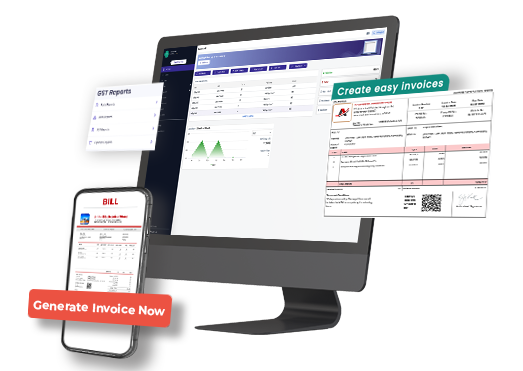Automated Billing Software: Streamlining Financial Management

In today’s fast-paced business landscape, efficiency is key, and Automated Billing Software has become a game-changer for businesses of all sizes. This article explores the significance, features, benefits, challenges, and the impact of Automated Billing Software on financial management and operational efficiency.
1. Introduction
In the business world, time is money, and efficiency in financial management is paramount. Automated Billing Software has emerged as a crucial tool for businesses to streamline their billing processes and enhance overall efficiency.
2. Understanding Automated Billing Software
2.1 What Is Automated Billing Software?
Automated Billing Software is a digital tool designed to automate and simplify the billing and invoicing process for businesses. It can handle various billing tasks, from generating invoices and tracking payments to managing subscriptions and sending reminders.
2.2 Key Features of Automated Billing Software
Invoice Generation: Automatically generates and sends invoices to clients or customers.
Payment Tracking: Monitors payments, sends reminders for overdue bills, and records transactions.
Recurring Billing: Automates billing for subscriptions or recurring services.
Customization: Allows businesses to customize invoice templates and billing schedules.
Reporting: Provides insights through analytics and reporting features.
3. The Importance of Automated Billing
Automated Billing Software plays a vital role in modern business for several reasons:
Time Savings: It reduces the time and effort required for manual billing processes.
Cost Efficiency: It cuts down on administrative costs associated with paper-based billing.
Accuracy: It minimizes errors and ensures accurate billing.
Cash Flow Management: It helps businesses maintain a healthy cash flow.
Customer Relations: It enhances customer satisfaction by providing convenient and error-free billing.
4. Benefits of Automated Billing Software
4.1 Time and Cost Savings
Automated billing significantly reduces the time spent on manual invoicing and lowers administrative costs.
4.2 Accuracy and Reduced Errors
Automation minimizes human errors, ensuring that invoices are accurate and consistent.
4.3 Improved Cash Flow Management
Businesses can better manage their cash flow with automated billing, as it provides insights into outstanding invoices and payment trends.
4.4 Enhanced Customer Satisfaction
Automated billing offers a seamless and convenient experience for customers, leading to improved satisfaction and loyalty.
4.5 Analytics and Reporting
Businesses can gain valuable insights into their billing performance through analytics and reporting features.
5. Challenges in Implementing Automated Billing Software
5.1 Initial Setup and Training
Adopting Automated Billing Software may require initial setup and training for staff, which can be a short-term challenge.
5.2 Data Migration
Migrating existing billing data into the new software can be complex, requiring careful planning.
5.3 Integration with Other Systems
Ensuring compatibility and integration with other business systems may present integration challenges.
6. Customization and Scalability
Businesses should consider whether the Automated Billing Software can be customized to fit their specific needs and whether it can scale with the growth of the business.
7. Choosing the Right Automated Billing Software
Selecting the appropriate Automated Billing Software involves assessing factors like scalability, ease of use, customer support, and compliance with financial regulations.
8. Future Trends in Automated Billing
Future developments in Automated Billing Software include AI-driven invoice processing, blockchain-based billing security, and enhanced mobile invoicing capabilities.
9. Conclusion
Automated Billing Software has become a cornerstone of modern financial management, offering businesses a way to improve efficiency, reduce errors, and enhance customer satisfaction. Despite initial challenges, its widespread adoption is indicative of its undeniable value in streamlining billing processes.
10. Frequently Asked Questions (FAQs)
Q1: What are the primary benefits of Automated Billing Software?
Automated Billing Software offers benefits such as time and cost savings, improved accuracy, enhanced cash flow management, and increased customer satisfaction.
Q2: How does Automated Billing Software handle recurring billing?
Automated Billing Software can automate the billing process for subscriptions or recurring services, generating invoices and processing payments at specified intervals.
Q3: Can Automated Billing Software integrate with accounting and CRM systems?
Yes, many Automated Billing Software solutions offer integration capabilities with accounting and Customer Relationship Management (CRM) systems.
Q4: What challenges should businesses anticipate when implementing Automated Billing Software?
Common challenges include initial setup and training, data migration, and ensuring seamless integration with existing systems.
Q5: What future trends can we expect in Automated Billing Software?
Future trends include AI-driven invoice processing, blockchain-based billing security, and mobile invoicing enhancements for increased convenience.
In conclusion, Automated Billing Software has become an indispensable tool for businesses seeking to streamline their financial operations and enhance customer satisfaction. As technology continues to advance, organizations embracing this software are poised to achieve greater efficiency and financial control.